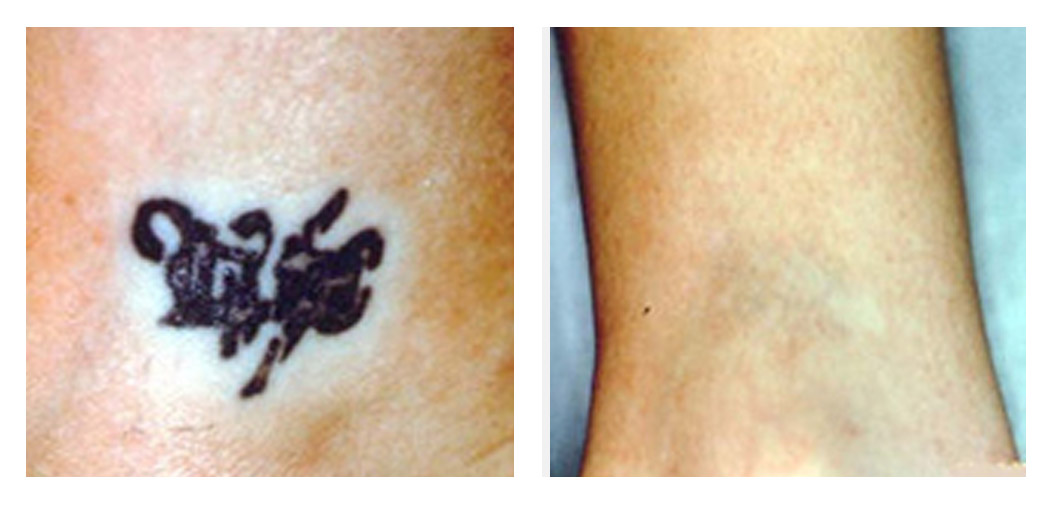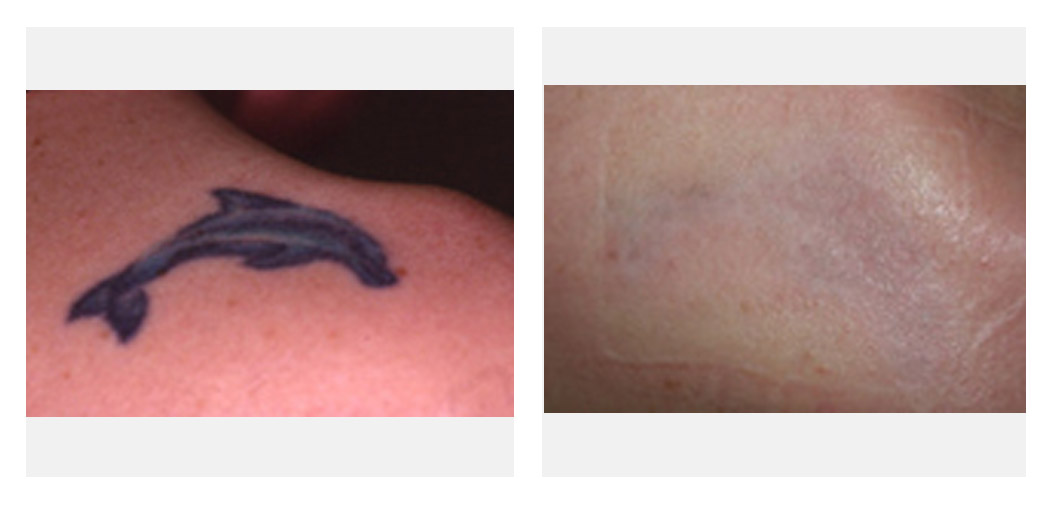Laser Tattoo Removal
Tattooing is an old art that is gaining popularity today particularly among the young. Aside from serving to commemorate a person or a memory, tattoos are a form of expression that symbolizes certain beliefs or ideologies. Others get cosmetic tattoos as a means of permanent makeup, to enhance eyebrows, lips or even moles. After some time, a tattoo may go out of fashion, people may not like the shape or color of their tattoo, develop an allergic reaction to it, or want to avoid the social stigma of having a tattoo. Old removal methods have included dermabrasion, chemical peels and surgical removal, all which leave unacceptable scarring and may not completely removal a tattoo.

laser treatment of tattoo. Lighter colors are more difficult to resolve.
Treatment with a laser for tattoos is safer than traditional methods because of the laser's unique ability to selectively treat the pigment in the tattoo. The laser will eliminate the tattoo pigment while leaving the surrounding skin intact. This works for amateur, professional and cosmetic tattoos. The optimal lasers for green black tattoo removal are the Q-switched lasers. These deliver high intensity laser in very quick nanosecond pulses, which causes the pigment to burst and be removed by the body’s natural immune system. Other lasers such as the hair removal laser may leave unacceptable scars and are not recommended. For colored cosmetic tattoos, a Q switched laser doesn’t work, and a resurfacing laser is preferred.
Dr Touma uses PFD patches that allow double treatments per single session, faster resolution of the tattoo pigment, and less treatment time over all.

6 laser treatments of tattoo
The effectiveness of the laser is dependent upon the location and the depth of the tattoo, as well as the composition of the pigments, which gives the tattoo its color. Amateur tattoos are the easiest to remove because they are usually made up of a single color/pigment that is placed superficially, while professional tattoos are composed of several pigments and are placed deeper in the dermis. In general, blue/black color is the easiest to remove, while bright to tan colors are more difficult. All tattoos will require re-treatment at 4-6 weeks intervals. Overall 2-4 treatment sessions are needed for amateur tattoos, and 3-12 sessions are needed for professional tattoos, depending on their density, color and type of pigment. For cosmetic tattoos, less treatments are needed.


